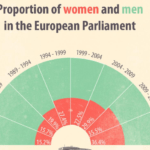The European Commission presented its autumn economic policy package, including the Opinions on euro area Draft Budgetary Plans (DBPs) for 2021 and policy recommendations for the euro area.
This is the second step in the 2021 European Semester cycle, which started in September with the publication of the Annual Sustainable Growth Strategy (ASGS) with the concept of competitive sustainability at its heart. The ASGS also provided strategic guidance for Member States in drafting their Recovery and Resilience Plans and set out the relationship between the Recovery and Resilience Facility (RRF) and the Semester. Today’s package draws upon the Autumn 2020 Economic Forecast – prepared in a context of high uncertainty – which projected that the economic shock caused by the coronavirus pandemic would leave output in the euro area and the EU below its pre-pandemic level in 2022.
Opinions on the Draft Budgetary Plans of euro area Member States
The Opinions on the 2021 DBPs take into account the ongoing health crisis, the high level of uncertainty and the severe economic downturn resulting from the COVID-19 outbreak. Given the activation of the general escape clause of the Stability and Growth Pact, the fiscal recommendations issued by the Council in July 2020 were of a qualitative nature. Today’s Opinions therefore look especially at whether the planned supportive budgetary measures for 2021 are temporary and if not, whether offsetting measures are planned.
The Commission has assessed that all DBPs are overall in line with the Council’s recommendations of 20 July 2020.
For Belgium, France, Greece, Italy, Portugal and Spain, given the level of their government debt and high sustainability challenges in the medium-term before the outbreak of the COVID-19 pandemic, it is important to ensure that, when taking supporting budgetary measures, fiscal sustainability in the medium-term is preserved.
Steps under the Stability and Growth Pact in relation to Romania
Romania has been under the excessive deficit procedure (EDP) since April 2020 due to the breach of the Treaty deficit threshold in 2019. In light of the continued high uncertainty due to the coronavirus pandemic, the Commission considers that no decision on further steps in Romania’s excessive deficit procedure should be taken at this juncture. It will reassess Romania’s budgetary situation in spring 2021.
Euro area recommendation, Alert Mechanism Report, and proposal for a Joint Employment Report
The recommendation on the economic policy of the euro area presents tailored advice to euro area Member States on those topics that affect the functioning of the euro area as a whole. This year it also provides policy guidance on the priorities that euro area Member States should pursue in their Recovery and Resilience Plans. The recommendation calls on euro area Member States to make sure that their fiscal policies remain supportive in 2021.
The Alert Mechanism Report (AMR), a screening device to detect potential macroeconomic imbalances, finds that while macroeconomic imbalances were narrowing until the outbreak of the COVID-19 crisis, risks of imbalances appear to be on the rise in Member States that were already experiencing imbalances prior to the COVID-19 pandemic.
The proposal for a Joint Employment Report analyses the impact of the COVID-19 pandemic on the employment and social situation in Europe. The COVID-19 crisis has broken a six-year long positive trend on the labour market. The total number of people in employment and the employment rate have dropped significantly, though the increase in the unemployment rate has been moderate so far thanks to the swift adoption of short-time work schemes and similar measures.
Enhanced surveillance report and post-programme surveillance reports
The eighth enhanced surveillance report for Greece finds that, in spite of the adverse circumstances caused by the COVID-19 pandemic, the Greek authorities have taken the necessary actions to achieve the agreed commitments, delivering on a number of fundamental reforms. The report could serve as a basis for the Eurogroup to decide on the release of the next set of policy-contingent debt measures.
The post-programme surveillance reports for Cyprus, Ireland, Portugal, and Spain find that the repayment capacities of each remain sound.
Next steps
The Commission invites the Eurogroup and Council to discuss the package and endorse the guidance offered today. It looks forward to engaging in a constructive dialogue with the European Parliament on the contents of this package and each subsequent step in the European Semester cycle.







Leave a Reply